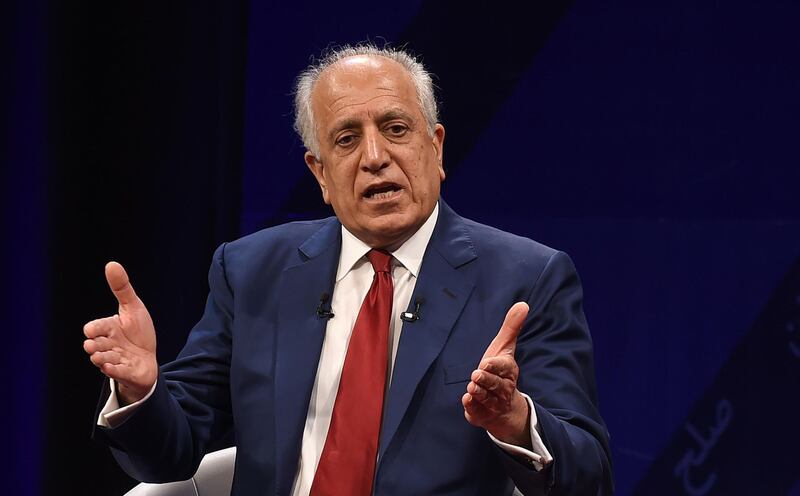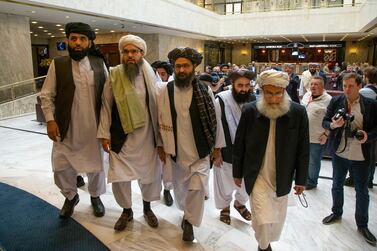Peace talks on Afghanistan have yielded “substantive progress” on all four key issues at stake, the US peace envoy to the country said on Saturday.
Zalmay Khalilzad said the six days of discussion had been the “most productive to date” and had produced movement towards agreements on counterterrorism assurances, troop withdrawal, participation in intra-Afghan dialogue and negotiations, as well as a permanent ceasefire.
So far, talks with the Taliban to bring an end to the 18-year conflict had been exclusively about troop withdrawal and antiterrorism guarantees, he said.
The last 6 days of talks have been the most productive session to date. We made substantive progress on ALL 4 parts of a peace agreement: counter-terrorism assurances, troop withdrawal, participation in intra-Afghan dialogue & negotiations, and permanent & comprehensive ceasefire
— U.S. Special Representative Zalmay Khalilzad (@US4AfghanPeace) July 6, 2019
But on Saturday, Mr Khalilzad said the discussions have broadened to include a timeline for both intra-Afghan negotiations as well as a ceasefire.
Thus far, the Taliban have refused to negotiate talk directly with the Afghan government, stating they would rather sit down with any Afghan, even a government official, in a personal capacity as an ordinary citizen and not as a government representative.
Mr Khalilzad has been meeting the Taliban in Doha, but these talks will be paused to make way for all-Afghan talks, also in the Qatari capital.
We’re pausing talks today to support intra-Afghan dialogue (an intra-Afghan conference for peace), a critical milestone in the #AfghanPeaceProcess. There is still important work left to be done before we have an agreement. We will resume on the 9th after the dialogue.
— U.S. Special Representative Zalmay Khalilzad (@US4AfghanPeace) July 6, 2019
At a press conference, Mr Khalilzad said he hoped the German and Qatar-sponsored talks would be a precursor to negotiations to hammer out the framework for Afghanistan’s post-war future – what he called the “actual give and take about the future of the country, the political roadmap that will take place during negotiations”.
He said Washington’s “aspiration” was to have that framework in place by September 1, before the Afghan presidential election scheduled for September 28.
April’s all-Afghan talks fell apart before they began, with a dispute over the attendance list. The Taliban criticised the Afghan government’s 250-strong list as a “wedding party”.
Sunday’s talks will have a pared down list of 64 people, said Attaullah Rahman Salim, the deputy head of the government’s high peace council.
Organisers said all invitees would attend “on equal footing”, with government officials attending only in a personal capacity as citizens of the country.
Afghan President Ashraf Ghani, who has been conspicuously quiet about the upcoming intra-Afghan dialogue, has consistently demanded the Taliban talk directly with the government.
Sunday’s list includes senior members of the government, former mujahideen who fought the Soviets in the 1980s as well as former government officials, former ambassadors, civil society representatives and a small number of women.
The Taliban have gained strength over the past three years, and are now at their strongest since the US-led invasion in 2001. They currently control almost half of Afghanistan.







